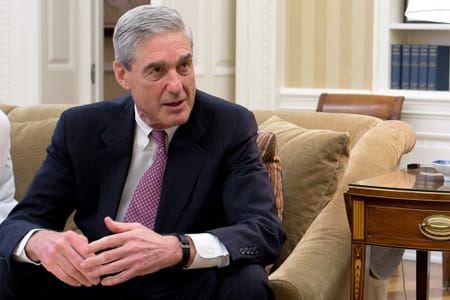Danielle Brian
Author

Current efforts to delegitimize the rule of law are undermining our democratic system, and it needs to stop. Attacks in the media by some Republican Members of Congress on Special Counsel Robert Mueller and his efforts to perform a legitimate law enforcement function, independent from public pressure, have become more and more frequent. Even President Trump has criticized the Special Counsel, including through statements on his Twitter account. Attempting to influence or shut down the Special Counsel, an authorized, independent law enforcement investigation, undermines a cornerstone foundation upon which America was built: that we are a nation based on laws, not merely subjective decisions of senior government officials.
That is not to say that any official—including a Special Counsel—or any institution is above oversight and accountability. But there are already proper checks in place to ensure there is no impropriety in our law enforcement institutions, and those don’t include the President’s Twitter account. Both the House and Senate Judiciary Committees and the Justice Department Inspector General are properly charged with conducting oversight of the FBI. And in Deputy Attorney General Rod Rosenstein’s testimony, he acknowledged that it is also his responsibility to oversee the operations of the Special Counsel.
Despite recent rhetoric, the Special Counsel process is working. Robert Mueller’s team is performing criminal investigations regarding Russian interference in our nation’s elections and within the scope established by the Department of Justice in May of this year. Special Counsel Mueller is authorized to both investigate matters that arose or may arise from the original investigation and prosecute any related federal crimes. The negative characterizations and speculations about the Special Counsel’s investigation are clearly in response to recent developments, including plea agreements with Trump associates, one of whom is the former National Security Advisor, and the filing of a 12-count indictment on a host of criminal violations against others associated with the Trump campaign.
However, if President Trump takes action to either end or interfere with Mueller’s investigation, this would clearly go counter to the principle of the rule of law.
The Special Counsel process is designed to be a non-public process. Just like a grand jury, the process is insulated from the politics of Congress or the White House until the investigation is concluded. Where will the Special Counsel investigation end up? We don’t know, but even President Trump has said from the very beginning that the investigation, when completed, will show he has done nothing wrong. It also must be noted that the Special Counsel is the first stage of a judicial process. Robert Mueller is not the judge and jury, and the investigation has not concluded. Until the investigation runs its course, political observers are, at best, wasting their time speculating about a process designed to be independent of politics. At worst, this speculation is designed to pressure the Special Counsel.
And what about the congressional investigations? These also play an important but distinct role compared to the Special Counsel. As POGO explained several months ago in an historical analysis of past concurrent executive/legislative branch investigations, these investigations are complimentary. The Special Counsel and congressional investigative roles are both critical for fact-finding and taking action. Congress has a much smaller criminal investigative role, but it is the only institution that can look into policy failings that may need fixing in order to preserve the integrity of our elections. Our testimony before a Senate Judiciary subcommittee in July underscores this view.
There is an important initiative in Congress to underscore that the work of the Special Counsel remains independent from political threats. According to existing rules put in place nearly 20 years ago within the Department of Justice, a Special Counsel should remain on the job except for “misconduct, dereliction of duty, incapacity, conflict of interest, or other good cause.” Bipartisan legislation introduced in the House would elevate this as part of law, and deserves the full support of Congress.
The best way to ensure the rule of law prevails is to allow a law enforcement institution designed for independence to do its job, then allow the judicial process—if it ever gets to that point—to run its course. The constitutional principles of checks and balances and separation of powers should not be undermined.

Sent Saturdays
